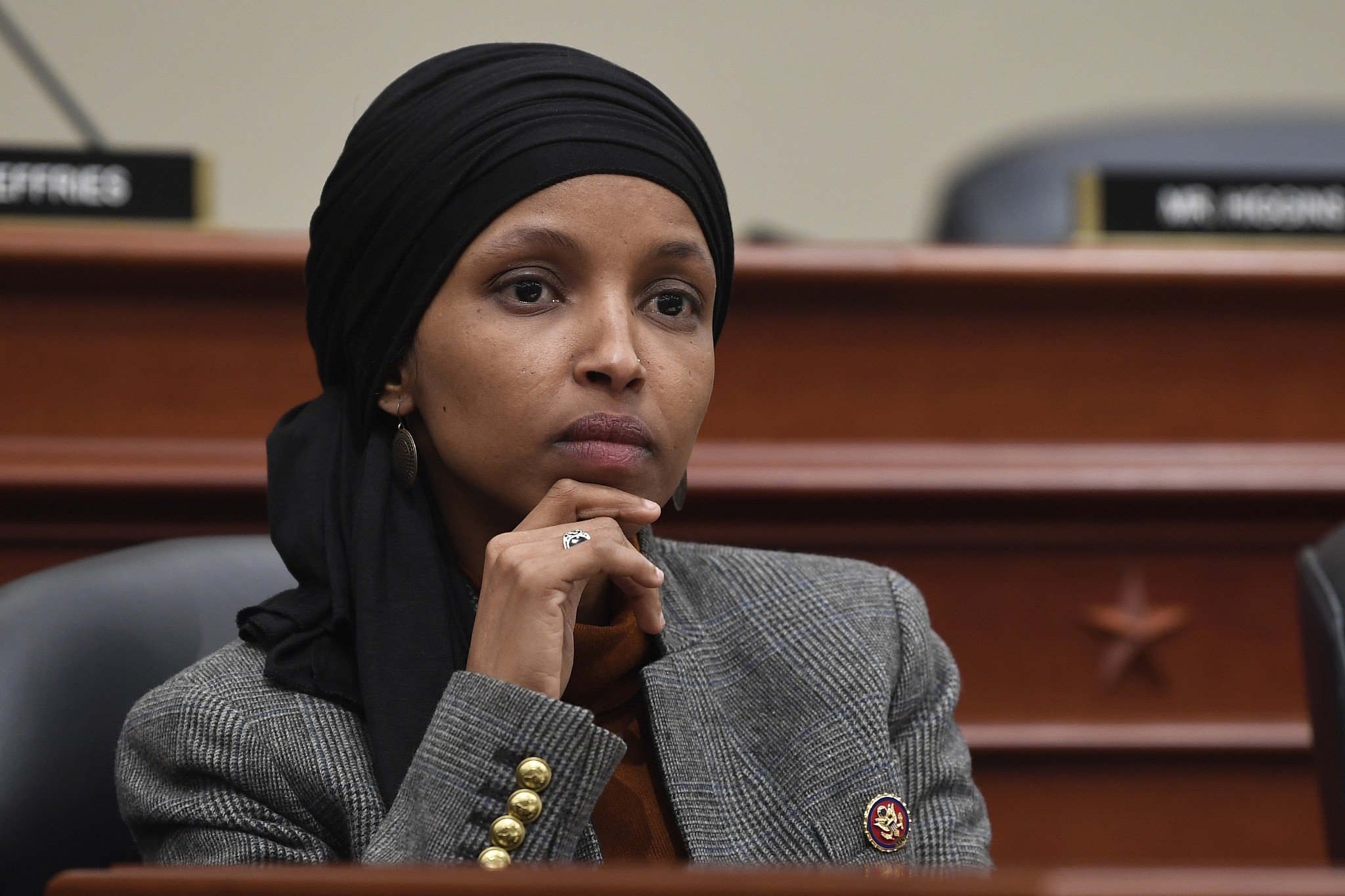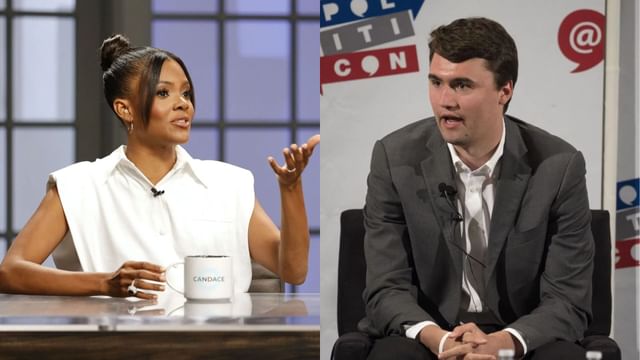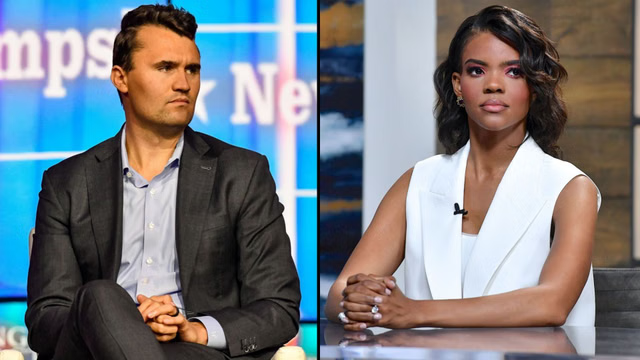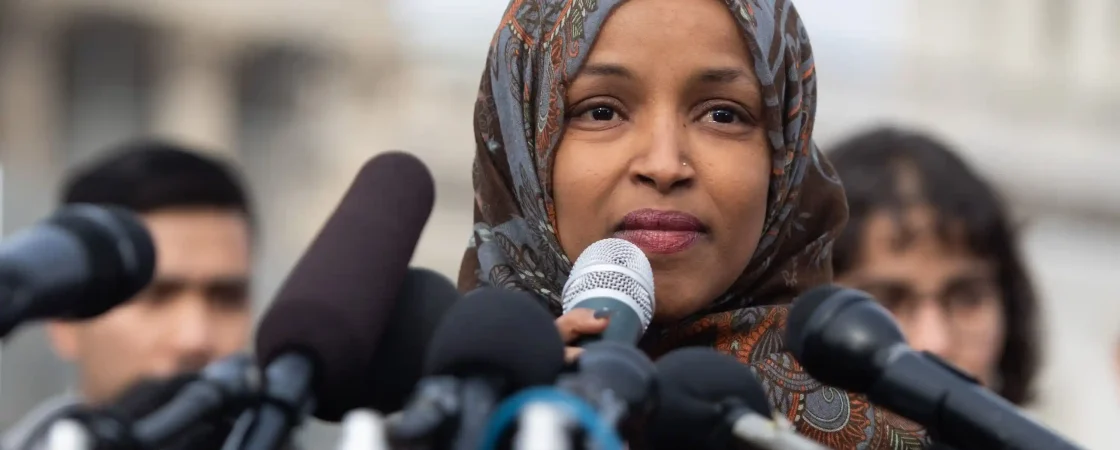When Senator John Kennedy walked into the chamber that morning, the atmosphere inside Capitol Hill was already charged. Cameras lined the back wall, lights flooded the marble floor, and staffers whispered nervously as he placed a thick stack of folders on the desk before him.
At first, it seemed like just another oversight hearing — the kind of routine political exchange that fills Washington’s schedule every week. But something about Kennedy’s tone, his measured pace, and the unusual silence in the room made it clear: this wasn’t business as usual.
He began with calm authority, outlining concerns about transparency, accountability, and ethics in government funding. But within minutes, the energy in the room shifted. The Louisiana senator’s words grew sharper, more deliberate. Then came the moment that would stop Washington in its tracks — the moment he reached for that final folder.
The Calm Before the Storm
Reporters watching from the press gallery sensed it before anyone else did.
Kennedy’s rhythm slowed. His hand hovered over a single file, one slightly apart from the others, bound in red tape and stamped “CONFIDENTIAL.”
He took a breath, looked around the room, and said quietly,
“This one wasn’t supposed to see the light of day.”
The words hung in the air like electricity. Lawmakers exchanged glances. Some leaned forward, while others shifted uncomfortably in their seats.
Kennedy continued, flipping open the folder with deliberate precision. Inside were pages of correspondence, data, and internal memos that appeared to raise serious questions about decision-making and oversight tied to congressional initiatives.
He didn’t accuse. He didn’t dramatize. He simply read — word for word, page by page — letting the material speak for itself.
Ilhan Omar’s Reaction
Across the aisle, Representative Ilhan Omar listened intently. She’d been the focus of many political debates before, but this felt different. The air in the room was heavy with tension, and even her most seasoned aides seemed unsure how to react.
When Kennedy mentioned her name — not in accusation, but in context — the room fell dead silent.
“These documents,” he said, “raise questions — not about party loyalty, but about accountability. And if we believe in the institutions we serve, those questions deserve honest answers.”
Omar’s expression remained composed, but the cameras caught a flicker of surprise in her eyes — a momentary flash of confusion, perhaps disbelief. She leaned toward one of her aides, whispered something, then folded her hands and looked back toward the senator.
To the viewers watching live, it was gripping television. To those inside the room, it felt like the oxygen had been sucked out.

The Room Erupts
As Kennedy closed the folder, murmurs broke out across the chamber. Several reporters stood to type furiously, relaying snippets of the exchange across social media. Within minutes, clips of his statement began circulating online.
Phrases like “confidential file,” “unseen evidence,” and “Omar stunned” dominated trending topics. But amid the noise, one question emerged everywhere: what exactly was in that final folder?
Some speculated it was an internal audit. Others believed it was an overlooked series of budgetary memos. But no one seemed certain, and Kennedy’s office declined to elaborate immediately after the session.
Behind Closed Doors
According to insiders, what happened after the cameras stopped rolling was even more intense than what the public saw.
The hearing ended abruptly, with the chair calling for an unscheduled recess. Staffers huddled in small groups, phones rang nonstop, and whispers echoed down the marble corridors.
That evening, senior aides reportedly gathered for a private follow-up meeting. What they discussed remains unclear, but multiple sources described it as “tense” and “unusually emotional.”
One staffer familiar with the discussion later said anonymously:
“The senator didn’t expose a scandal — he exposed discomfort. He reminded everyone that transparency isn’t optional, even when it’s inconvenient.”

Media Frenzy
By the next morning, nearly every major network had aired the clip. Headlines read:
-
“Kennedy’s Final Folder Sparks Uproar on the Hill”
-
“Omar Responds to Senator’s Surprise Disclosure”
-
“Transparency or Targeting? Washington Divided Over Kennedy’s Move”
Editorial panels lit up with debate. Some praised Kennedy for his courage and commitment to oversight. Others accused him of grandstanding or politicizing internal reviews.
But regardless of viewpoint, everyone agreed on one thing — the moment had captured the nation’s attention.
Late-night hosts joked about “the mysterious red folder.” Talk shows ran side-by-side comparisons of Kennedy’s tone versus Omar’s reaction. Hashtags like
#FinalFolder and #KennedyReveal began trending across platforms.

The Unexpected Twist
Just when it seemed the storm was settling, a new twist emerged. A spokesperson for the Senate Ethics Committee announced that several of the documents Kennedy had cited would now be formally reviewed — not because of alleged wrongdoing, but to ensure proper procedure.
It wasn’t an accusation; it was a precaution. But the timing reignited public curiosity.
Then, during a follow-up interview, Kennedy was asked whether he regretted reading from the folder. His answer was characteristically blunt:
“If sunlight bothers someone, maybe they’ve been sitting in the dark too long.”
That single line reignited the entire debate — and instantly became one of the most replayed quotes of the week.
Omar Speaks Out
Two days later, Representative Omar addressed the incident.
Calm and deliberate, she told reporters,
“Transparency is a shared value. I’ve said before and I’ll say again — I have nothing to hide. But we can’t confuse accountability with theatrics.”
Her statement was widely covered, and even her critics acknowledged that her measured response helped cool tensions.
Still, the public wanted answers. News outlets demanded to see the documents. Analysts dissected each word Kennedy had read aloud, searching for hidden implications or missed context.
The more the conversation spread, the less it became about Kennedy or Omar — and the more it became about the system itself.

A Nation Divided — Yet Intrigued
Across the country, Americans reacted with mixed emotions. Some saw Kennedy’s move as bold leadership — a reminder that elected officials should never be beyond scrutiny. Others saw it as political theater designed to generate headlines and distract from broader issues.
Call-in shows were flooded. Editorial pages filled with opinion letters. And yet, amidst all the noise, a rare thing happened: citizens started actually reading congressional materials, asking questions, and demanding to understand how oversight really works.
One professor from Georgetown University put it succinctly in a televised panel:
“What Senator Kennedy did, intentionally or not, was reignite public curiosity about government accountability. And that might be the healthiest political development in years.”
The Human Moment
Lost in the frenzy was a brief, human exchange that few noticed. After the hearing adjourned, Kennedy reportedly walked over to Omar’s desk. Cameras had already turned away, but a photographer captured a blurry shot of the two speaking quietly for a few seconds.
What they said remains unknown. But witnesses described the tone as “civil” and even “respectful.”
Later, when asked about it, Kennedy smiled slightly and said,
“Sometimes you disagree loudly in public and listen quietly in private. That’s how democracy works.”
The quote quickly went viral — not for its drama, but for its rare show of civility in a time of division.
How the Story Evolved
Over the following week, coverage shifted from shock to analysis. Legal experts weighed in, saying Kennedy’s disclosure, while dramatic, appeared to follow established transparency rules.
Editorials debated whether he had crossed a line — but fact-checkers later confirmed that the documents he read were legitimate, publicly accessible records that had simply been overlooked.
In other words, there was no scandal — only the perception of one, magnified by surprise and timing.
Still, that perception mattered. It forced conversations that Washington often avoids. And it reminded viewers that sometimes, the most powerful moment in politics is when someone simply opens a folder and tells the truth.
A Lesson in Accountability
Weeks later, when the dust settled, both Kennedy and Omar moved on to other legislative business. But the echoes of that hearing remained.
Students at political science programs began using the event as a case study on political communication and the role of transparency in modern governance.
Columnists referred to it as “The Folder Moment” — a defining episode where confrontation led not to chaos, but to conversation.
And despite all the heated commentary, both sides quietly agreed on one takeaway: sunlight may sting at first, but it heals in the long run.
The Final Reflection
In the end, the story wasn’t about winners or losers. It wasn’t even about Kennedy or Omar. It was about how fragile — and how vital — public trust really is.
In an age of filters and headlines, that single gesture — reaching for a folder and reading the truth aloud — became a metaphor for something larger.
Because in that moment, beneath the tension and political theater, Kennedy reminded Washington — and the country — of something it too often forgets: accountability isn’t partisan. It’s patriotic.
Epilogue: What Happened After the Cameras Stopped
Weeks later, a clip surfaced from a behind-the-scenes recording — nothing controversial, just a quiet shot of Kennedy leaving the chamber, shaking hands with a few reporters, and laughing lightly.
“Was that your final folder, Senator?” someone called out.
He turned, smiled, and said,
“Oh, there’s always one more folder.”
The line drew laughter — but also left a lingering sense that maybe, just maybe, the real story of Washington isn’t the fights we see on camera, but the questions that come after.
And as America continues to debate, argue, and search for common ground, one thing is certain — the day Kennedy opened that red folder will be remembered not as a scandal, but as a symbol of what democracy still dares to be: open, imperfect, and alive.
Breaking News: Nick Fuentes Called Candace Owens an “Uncle Tom” and a “DEI Hire” Before Charlie Kirk’s D.e.a.t.h — Insiders Warn This Feud Could Tear the Conservative Movement Apart From Within
Breaking News: Nick Fuentes Called Candace Owens an “Uncle Tom” and a “DEI Hire” Before Charlie Kirk’s D.e.a.t.h — Insiders Warn This Feud Could Tear the Conservative Movement Apart From Within
The Moment That Changed Everything
It was supposed to be just another day of political theater on the far-right stage. Nick Fuentes, the brash, unfiltered voice of a younger generation of online firebrands, was doing what he does best—throwing rhetorical grenades at anyone who dared to cross him. His target that night? None other than Candace Owens, the polished, camera-ready commentator who had built her brand on being both controversial and mainstream-friendly.
But what Fuentes said would echo far louder than expected.
“Candace Owens is nothing more than an Uncle Tom. A DEI hire for the conservative establishment,” Fuentes sneered, his voice dripping with disdain. “She’s their token. They prop her up because it looks good. That’s it.”
The insult was sharp, cutting, and designed to sting. But what no one could have predicted was how quickly it would take on a far darker dimension.
Just days later, Charlie Kirk—the founder of Turning Point USA, Owens’ longtime ally, and one of the most influential conservative activists of his generation—was dead.
The timing was impossible to ignore. The feud between Fuentes and Owens had just reached a fever pitch. Now, with Kirk gone, insiders whisper that the fallout could rip the conservative movement apart at the seams.
And the question everyone is asking: Was this just a war of words? Or the beginning of something much more sinister?

The War of Words
For years, the conservative movement has been a patchwork quilt stitched together by uneasy alliances. Big-money donors, firebrand commentators, populist outsiders, and religious traditionalists—each faction tolerating the other as long as they had a common enemy. But like any fragile coalition, the cracks were always there.
Nick Fuentes represented the most radical of the new right: unapologetically extreme, unfiltered, and hostile toward anyone who didn’t fit his vision of ideological purity. Candace Owens, on the other hand, was the polished face of mainstream conservatism, playing both Fox News panels and Twitter battles with equal ease.
Their collision was inevitable.
The night Fuentes delivered his insult, insiders say he knew exactly what he was doing. “He wanted to make it personal,” one anonymous aide close to Fuentes told us. “It wasn’t about policy or ideas. It was about branding. He thinks Candace is fake, and he wanted to strip her credibility in the ugliest way possible.”
Owens, for her part, brushed off the attack publicly. On social media, she dismissed Fuentes as “irrelevant” and “desperate for attention.” But privately, sources say, she was furious. “She felt betrayed,” another insider explained. “These people are supposed to be on the same side. She believed Fuentes crossed a line that could never be uncrossed.”
The Shadow of Charlie Kirk
And then came Charlie Kirk’s sudden death.
To the outside world, Kirk was a symbol of the new conservative youth movement—an ambitious activist who built Turning Point USA into a juggernaut of influence on college campuses and beyond. To Owens, he was more than that. He was a partner, an ally, someone who had amplified her voice when others doubted her.
Fuentes’ words were still hanging in the air when Kirk passed away. And suddenly, that ugly insult—“Uncle Tom,” “DEI hire”—took on an eerie resonance.
“People are connecting dots, whether they should or not,” said a Republican strategist who has worked with all three figures. “You have Nick lobbing bombs at Candace, then Charlie dies, and suddenly the narrative isn’t about insults—it’s about whether something much bigger is happening behind the scenes.”
Insider Whispers: A Movement on the Brink
Almost overnight, the feud shifted from personal drama to existential crisis. Inside donor circles, whispers spread: Was the conservative movement tearing itself apart from the inside?
Some claim Fuentes’ attack was no accident. “He’s trying to delegitimize Candace,” one insider told us. “If she’s seen as the establishment’s puppet, then her influence crumbles. And with Charlie gone, she loses one of her strongest allies.”
Others believe the feud could expose long-hidden fractures. “There’s always been tension between the polished, media-friendly conservatives and the radical online base,” said a former Turning Point staffer. “Now those tensions are exploding out in the open. And the timing, right after Charlie’s death? It’s chilling.”
One source put it even more bluntly: “This isn’t just infighting. It’s sabotage.”

The Dangerous Power of Words
For Candace Owens, the label “Uncle Tom” cuts especially deep. It’s an accusation of betrayal, of selling out one’s identity for personal gain. Coming from someone like Fuentes, it wasn’t just a personal insult—it was an attempt to brand her permanently in the eyes of the conservative base.
And “DEI hire”? That phrase drips with modern political venom. In a movement that rails against “wokeness,” the suggestion that Owens was only elevated for diversity optics strikes at the heart of her credibility.
“Fuentes was playing with fire,” one conservative commentator explained. “He wasn’t just insulting her. He was trying to rewrite the story of who she is in the movement. That’s dangerous. Words like that stick. And in the wake of Charlie’s death, they feel radioactive.”

The Media Frenzy
The moment Nick Fuentes’ remarks collided with Charlie Kirk’s sudden death, the media pounced. Mainstream outlets framed it as yet another example of right-wing dysfunction, while smaller conservative sites scrambled to control the narrative.
Fox News gave it only cautious coverage, carefully avoiding any suggestion that Fuentes’ words had a direct connection to Kirk’s passing. CNN and MSNBC, however, leaned hard into the drama, painting the feud as symbolic of a movement unraveling from within.
One MSNBC panelist didn’t mince words: “This is the conservative movement eating itself alive. When you have someone like Nick Fuentes openly calling Candace Owens a token, and then one of the biggest figures of their generation dies days later, you can’t ignore the symbolism. Something is rotten in this coalition.”
Meanwhile, social media turned into a battlefield. Hashtags like #UncleTomGate and #CandaceVsNick trended for days, with thousands of users weighing in on who was right, who was wrong, and what it all meant for the future of the American right.
But beyond the surface-level chatter, whispers of something darker began to circulate.

The Conspiracy Machine Kicks In
It didn’t take long for conspiracy theorists to seize on the timing.
Within hours of Kirk’s death, fringe forums were ablaze with speculation. “Was Charlie silenced because he knew too much?” one post asked. Another claimed: “Fuentes’ attack wasn’t random—it was coordinated.”
The theories spiraled quickly:
-
Some argued that Kirk had uncovered internal corruption, and his sudden passing was no accident.
-
Others suggested that Fuentes was being used as a pawn to destabilize Owens and fracture her support.
-
A few went even further, claiming the feud was a “psy-op” orchestrated by shadowy elites who wanted the conservative base divided.
“These theories may sound wild, but they’re gaining traction because the timing is just too eerie,” explained a political psychologist we consulted. “When major figures die suddenly, and heated feuds are happening around them, people instinctively search for hidden connections. It’s human nature to suspect more than coincidence.”
Candace Owens Fires Back
Candace Owens, never one to stay silent for long, began responding more forcefully after the funeral services for Charlie Kirk.
“Nick Fuentes represents everything that is wrong with this movement,” she declared in a livestream viewed by nearly half a million people. “He doesn’t build. He destroys. He tears down people who are actually doing the work, while he sits behind a screen throwing insults.”
She didn’t stop there. Owens also hinted that Fuentes’ words had a more sinister undertone. “The timing of his attacks is… interesting. That’s all I’ll say for now.”
Her words only fueled speculation. Was she suggesting a link between Fuentes’ insult and Kirk’s death? Or was she simply pointing out the cruelty of the coincidence?
Either way, Owens had drawn a line in the sand.
Fuentes Doubles Down
If Owens thought her words would shame Fuentes into silence, she miscalculated.
On his next broadcast, Fuentes smirked into the camera and fired back. “Candace can cry all she wants. The truth hurts. She is exactly what I said she was. A prop. A token. A product of the establishment.”
He then went further, accusing Owens of exploiting Kirk’s death for sympathy. “She’s already spinning this into some sob story about how she’s the victim. It’s pathetic. This is politics. People die. Movements shift. But don’t pretend like this is about me when it’s about her insecurity.”
The comments sent shockwaves. Even some of Fuentes’ supporters began to question whether he had gone too far. “It was one thing to insult her,” one fan wrote on Telegram. “But mocking her grief? That crosses a line.”
The Conservative Civil War
Behind closed doors, Republican strategists and donors were panicking.
“This feud is radioactive,” said one donor close to Turning Point USA. “The optics are terrible. Instead of uniting after Charlie’s death, the movement looks like it’s imploding.”
Others worried about the broader implications. With an election year looming, the last thing Republicans wanted was a high-profile civil war between two of their most visible personalities. Yet that’s exactly what was unfolding.
Some insiders quietly began urging Owens to de-escalate. “Candace has more to lose than Nick,” one strategist explained. “He thrives on chaos. She thrives on credibility. If she keeps feeding the fire, it could damage her brand permanently.”
But Owens, sources say, refused to back down. “She feels this is about principle now,” a friend of hers told us. “It’s not just about her reputation. It’s about protecting Charlie’s legacy.”
The Kirk Factor
And that’s where Charlie Kirk’s ghost looms largest.
Though his death remains shrouded in questions, one thing is clear: his absence has left a gaping hole in the conservative ecosystem. Without him, Owens is more exposed. Without him, Fuentes feels emboldened. And without him, donors and activists are scrambling to figure out who holds the reins of influence.
“Charlie was a stabilizer,” explained a former Turning Point staffer. “You might not agree with everything he said, but he had the ability to keep the different factions from going nuclear on each other. Now that he’s gone, the gloves are off.”










